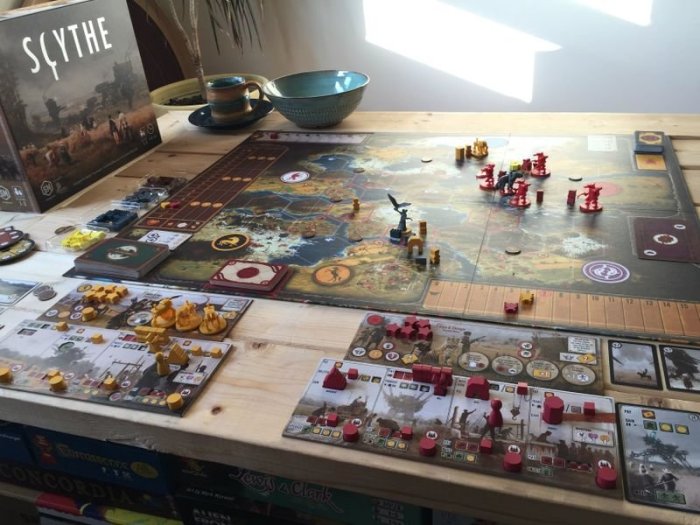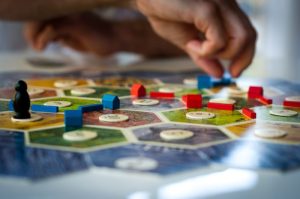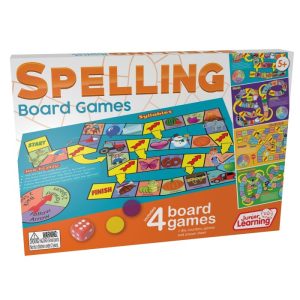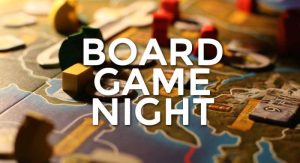
Immerse yourself in the world of solo board games, where solitary players find joy, challenge, and relaxation all in one box.
From exploring different gameplay mechanics to enhancing cognitive skills, solo board games offer a unique gaming experience tailored for one.
Introduction to Solo Board Games
Solo board games are tabletop games designed to be played by a single player without the need for opponents. These games often involve strategic decision-making, problem-solving, and immersive storytelling elements. While board games are traditionally played with friends or family, solo board games provide an opportunity for players to enjoy the experience on their own terms.Some popular examples of solo board games include “Friday” where players take on the role of Robinson Crusoe stranded on a deserted island, “Mage Knight” which offers a complex fantasy world to explore and conquer, and “Spirit Island” where players embody powerful spirits defending their island from colonizers.The appeal of playing board games alone lies in the ability to enjoy a challenging and engaging experience at one’s own pace.
Solo board games offer a sense of accomplishment as players overcome obstacles and achieve their objectives independently. Additionally, solo play allows for deep immersion in the game world and storyline without distractions, making it a rewarding and relaxing pastime for many enthusiasts.
Benefits of Playing Solo Board Games

Playing solo board games offers a variety of benefits that can enhance cognitive skills and provide a relaxing activity for individuals.
Enhancing Cognitive Skills
Playing solo board games can improve critical thinking, problem-solving, and decision-making skills. By strategizing and planning moves independently, players can enhance their ability to analyze situations, anticipate outcomes, and adapt to changing circumstances. This mental exercise can help sharpen cognitive abilities and boost overall brain function.
Relaxing Activity
Solo board games can also serve as a calming and enjoyable pastime. Engaging in a solo game allows individuals to unwind, de-stress, and focus their attention on the game at hand. The immersive nature of board games can provide a break from everyday worries and help players relax and recharge. Additionally, solo play offers a sense of accomplishment and satisfaction as players overcome challenges and achieve game objectives on their own.
Mechanics of Solo Board Games
Solo board games offer a unique gaming experience by incorporating specific mechanics tailored for single-player enjoyment. These mechanics are designed to provide engaging gameplay and challenging scenarios for solo players.
Examples of Gameplay Mechanics in Solo Board Games
- Deck Building: Games like “Mage Knight” or “Arkham Horror: The Card Game” utilize deck-building mechanics where players create and customize their decks to tackle various challenges.
- Worker Placement: Solo board games such as “Viticulture” or “Robinson Crusoe: Adventures on the Cursed Island” involve placing workers strategically to accomplish tasks and objectives.
- Cooperative Gameplay: Some solo games like “Spirit Island” or “Pandemic” allow players to control multiple characters or roles, working together to achieve a common goal.
- Resource Management: Games like “Terraforming Mars” or “Scythe” require players to efficiently manage resources to progress and succeed in their objectives.
Comparison of Solo and Multiplayer Board Game Mechanics
Solo board games often feature mechanics that are specifically tailored for single-player experiences, focusing on challenging puzzles, strategic decision-making, and immersive storytelling. In contrast, multiplayer board games may emphasize player interaction, negotiation, and competition among participants. While both types of games offer unique experiences, solo board games provide a more solitary and introspective gaming experience, allowing players to immerse themselves in the game world and storyline without external distractions.
Design Elements in Solo Board Games
Solo board games are designed with specific elements that contribute to their engaging gameplay. These elements are carefully crafted to immerse the player in a challenging and rewarding experience, even when playing alone.
Immersion Through Storytelling
Storytelling is a crucial design element in solo board games, as it helps create a rich narrative that draws the player into the game world. Through compelling storylines, characters, and settings, solo board games enhance the player’s experience and make each playthrough unique and memorable.
Strategic Balance
Balance is essential in solo board game design to ensure that players face meaningful decisions and challenges throughout the game. By carefully balancing difficulty levels, resource management, and player choices, solo board games offer a satisfying and engaging experience that keeps players coming back for more.
Varied Mechanics
Solo board games often incorporate a wide range of mechanics, such as deck-building, worker placement, and tile placement, to keep the gameplay fresh and engaging. These mechanics provide depth and complexity to solo board games, offering players different strategies to explore and master.
Artwork and Components
High-quality artwork and components play a significant role in solo board game design, enhancing the overall aesthetic appeal and immersing players in the game world. From beautifully illustrated cards to intricately designed game boards, visually appealing elements add to the enjoyment of playing solo board games.
Replayability and Scalability
Designing solo board games with high replay value and scalability allows players to enjoy the game multiple times without it becoming repetitive. By introducing variability in setup, objectives, and challenges, solo board games maintain interest and provide a fresh experience with each playthrough.
Tips for Enjoying Solo Board Games

Playing solo board games can be a rewarding and enjoyable experience. Here are some tips to help you maximize your enjoyment when playing solo board games.
Strategies for Maximizing Enjoyment
- Create a dedicated gaming space: Setting up a comfortable and organized space specifically for playing solo board games can enhance the overall experience.
- Choose games that suit your preferences: Select solo board games that align with your interests and gaming style to ensure a more enjoyable gameplay.
- Set goals and challenges: Establishing objectives and challenges for yourself within the game can add excitement and motivation to your solo gaming sessions.
- Take breaks when needed: Remember to take short breaks to prevent fatigue and maintain focus during longer gaming sessions.
- Engage with the community: Join online forums or social media groups dedicated to solo board gaming to connect with like-minded individuals and share experiences.
Recommendations for Solo Board Games
- For thematic gameplay: Consider titles like “Robinson Crusoe: Adventures on the Cursed Island” or “Eldritch Horror” for immersive storytelling.
- For strategic depth: Explore games such as “Mage Knight” or “Spirit Island” that offer complex decision-making and deep gameplay mechanics.
- For quick sessions: Opt for games like “Onirim” or “Friday” that provide engaging experiences in shorter playtimes.
Setting Up a Conducive Environment
- Ensure good lighting: Proper lighting is essential for clear visibility of game components and cards.
- Organize game components: Keep your game components and accessories neatly arranged to streamline setup and gameplay.
- Minimize distractions: Find a quiet and distraction-free environment to fully immerse yourself in the gaming experience.
End of Discussion
Discover the allure of playing solo board games as you navigate through engaging design elements, tips for maximizing enjoyment, and the captivating storytelling woven into each game.
Question & Answer Hub
Can solo board games be as enjoyable as multiplayer ones?
Absolutely! Solo board games offer a different but equally fulfilling gaming experience tailored for individual players.
Are solo board games beneficial for cognitive skills?
Yes, playing solo board games can enhance cognitive skills like problem-solving, strategic thinking, and decision-making.
How can I choose the right solo board game for me?
Consider your preferences in terms of theme, complexity, and gameplay style to find a solo board game that suits your taste.






